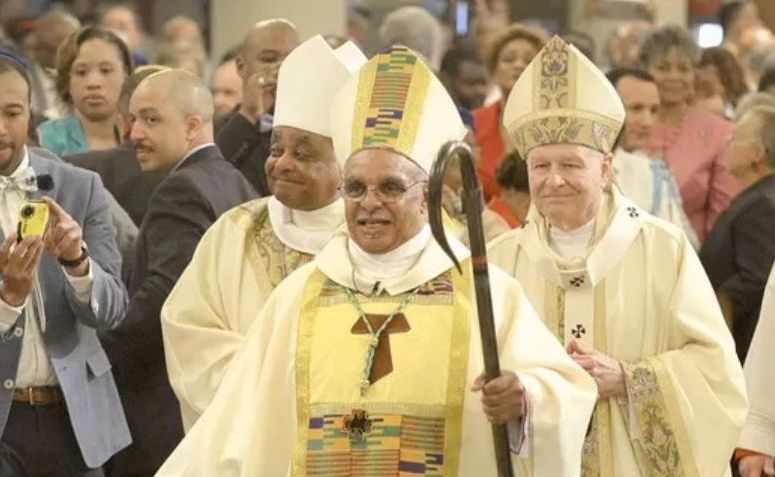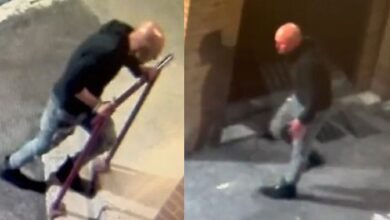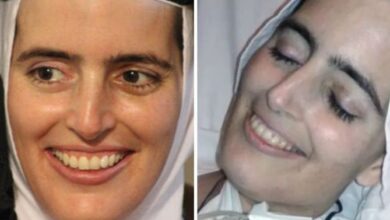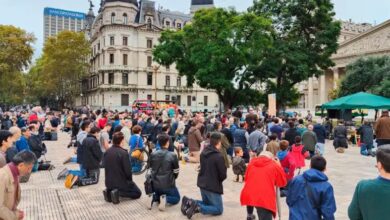Black legend of Spanish conquest is ‘profoundly anti-Catholic,’ historian says

 Painting by Dióscoro Puebla depicting the arrival of Christopher Columbus in America, on Oct. 12, 1492. / Credit: Dióscoro Puebla, Public domain, via Wikimedia Commons
Painting by Dióscoro Puebla depicting the arrival of Christopher Columbus in America, on Oct. 12, 1492. / Credit: Dióscoro Puebla, Public domain, via Wikimedia Commons Puebla, Mexico, Oct 29, 2024 / 09:00 am (CNA).
For renowned historian Jorge Traslosheros, who holds a doctorate in Latin American studies, the so-called “black legend” of the Spanish conquest of lands in the Americas arose “essentially and fundamentally as a profoundly anti-Catholic narrative.”
Traslosheros, a professor at the National Autonomous University of Mexico, explained to the Spanish edition of EWTN News that the “black legend” emerged in the 18th century and was consolidated in that same period, driven by the competition between England and Spain for “dominance in the American colonies.”
In this context, he said, England constructed a narrative, commonly known as the “black legend,” in which it presented its people as “the good guys in history — Anglicans, Protestants — against the perverse Spanish Catholic empire.”
He pointed out that this narrative is based on “selectively” extracted interpretations from the accounts of figures such as Friar Bartolomé de las Casas, a Spanish Dominican missionary and chronicler known for being one of the main defenders of the rights of Indigenous peoples in the Americas.
According to Traslosheros, the “black legend” emphasizes “inferiorization” — that everything to do with the Americas “is inferior to European and what’s Catholic is the worst that can exist.”
Still employed today
The historian warned that today the “black legend” has become “a political discourse,” used with the intention of “polarizing” society.
“We return to the idea that only the pre-Hispanic past was good, beautiful, and true,” said the researcher, who argues that all evils are attributed to the period of the Spanish viceroys, such as “corruption, perversion, exploitation; evil comes from Spain.”
The viceroy ruled a particular territory in the Americas in the name of the Spanish monarch and had extensive powers and responsibilities.
Thus, the historian explained, “if all the evil comes from that time, we are not responsible for the evils of the present. It’s the perfect alibi for irresponsible political parties.”
Problems of Indigenous people didn’t begin with viceroys
Regarding the Indigenous people, Traslosheros explained that “the great problems of the communities” do not originate in the period of the viceroys, as some suggest, but come from the “liberal reforms” of the 19th century after independence from Spain was gained, when “the autonomy [of the Indigenous] and their own forms of government, which were recognized by the Spanish monarchy, were denied.”
This problem is not exclusive to Mexico, he said, but affects all of Latin America, where “we cannot reconcile ourselves with our history. So we are totally deprived of the origin of our own culture, we are despising what we really are.”
The historian’s mission, he emphasized, “has nothing to do with judging the past” but rather with “understanding the past; that is, understanding how things happened in their own terms.”
In contrast, Traslosheros stated that “the mission of politicians is to win sympathetic support,” normally “by polarizing the arguments.” The historian emphasized the distinction that the black legend “is a historical narrative; it’s not the work of a historian.”
This story was first published by ACI Prensa, CNA’s Spanish-language news partner. It has been translated and adapted by CNA.
Ana Paula Morales contributed to this story.






